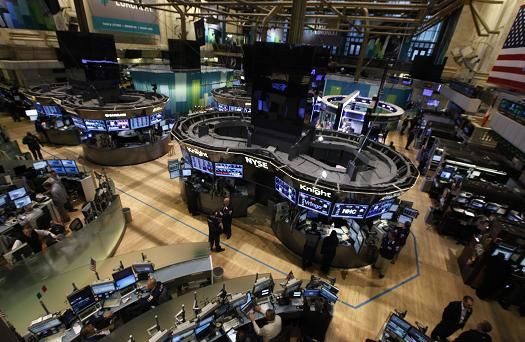Federal Reserve Bond Purchases Could Start to Slow or ‘Taper’ in September, Sparking Market Reactions: Barclays Economist

A Federal Reserve move to slow down its $85 billion-a-month bond purchases could start as soon as September, a Barclays PLC (LON:BARC) chief U.S. economist said Friday.
Even though federal growth forecasts for the U.S. economy are slightly too optimistic, said Barclays Chief Economist Dean Maki, an encouraging outlook for employment signals so-called tapering by September.
Maki told reporters in New York that the Federal Reserve could stop its quantitative easing program altogether by March 2014, a few months after the tapering starts, but is unlikely to hike interest rates until March 2015.
“Despite the fact that we’re less positive on growth in the U.S, we do expect tapering from the feds in September,” said Maki. “Previously we did not expect the fed to start tapering this year, based on our sluggish growth forecast.”
Maki argued that Fed Chairman Ben Bernanke’s decision to tie the end of money printing to an unemployment rate of 7 percent is key. The unemployment rate in May was 7.6 percent.
Maki believes that retiring baby boomers are pushing down labor force participation, and that if more than 100,000 jobs are added to the economy each month, the U.S. will reach that 7 percent threshold quickly.
“We continue, as we have been throughout this recovery, to expect a faster decline in the unemployment rate than others believe, including the Fed,” said Maki. “That is the key to ending QE [quantitative easing], the speed of the unemployment rate decline.”
Meanwhile, apprehension over U.S. monetary policy has surpassed fears about the European economy and an economic "hard landing" in China as “the most immediate risk” in the eyes of equity investors, said Michael Gapen, a senior U.S. economist from Barclays.
“Monetary policy will no longer be viewed as an unmitigated supporter of asset markets,” said Gapen. “If anything, it is now an immediate perceived risk, and probably viewed by most investors as the most immediate risk.”
Still, said Gapen, stocks are likely to outperform bonds in the short term, even as stocks deliver lesser returns compared with recent months. Advanced equity markets like Japan and the U.S. offer better value than emerging market equities, according to Gapen.
Equities won’t do too well in the next three to six months, as volatile markets try to keep a step ahead of subtly shifting Federal Reserve policy, he said.
If the Fed pulls off a gradual and carefully timed exit from money printing, then the economy and markets will do well, said Gapen.
But he added: “If the Fed has mistimed this or normalizes policy in a way that chokes off the recovery – that’s not a risk that we think is extraordinarily small – we don’t really know how this is going to work out.”
© Copyright IBTimes 2024. All rights reserved.






















